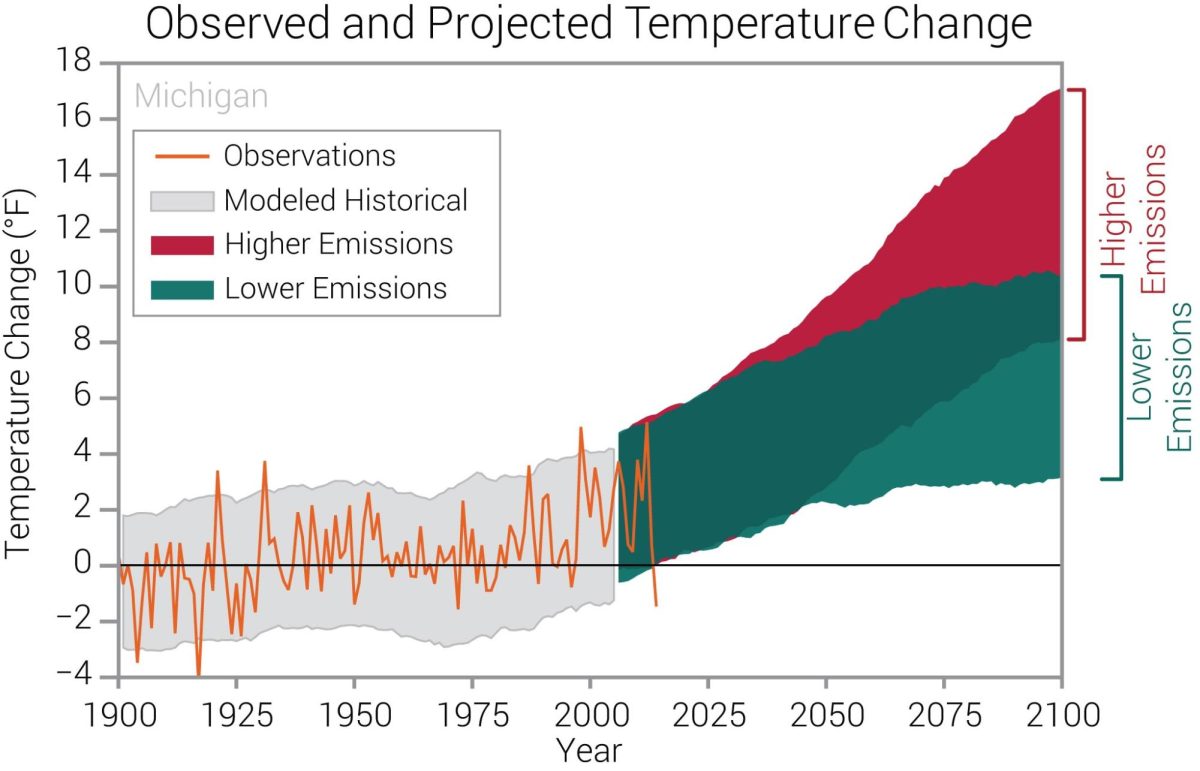Entering high school, the expectations shift. While the Michigan Merit Curriculum (MMC) aims to provide a standard education across the state, its somewhat rigid requirements limit student opportunities when it comes to engaging in creative, project-based learning. Berkley High School, specifically, can better support student learning by expanding project-based courses that count toward core graduation requirements.
Berkley, like all Michigan schools, must meet the MMC; legislation that includes educational standards for schools to ensure that students have the classes required to meet the demands of post high school education. Students must earn four English credits, four math credits, three science credits, three social studies credits, two world language credits, and two half credits for PE and Health. These 18 credits allow them to graduate. While the state dictates the required credits and content expectations for these courses, individual districts determine whether a course meets those standards to gain required credit or not.
Within the MMC guidelines, there are options for the creation of additional courses as well as pre-existing courses to be approved by local districts as meeting state standards. This allows for more personalization across districts, offering courses that slightly deviate from the core curriculum while still gaining required credits and the desired skill sets of students enrolled in said courses. If Berkley expanded the number of courses that count towards required credit, students would have more opportunities to engage in creative, project-based learning.
Generally, students will enroll in standard English 9-12, honors English courses, or AP Lit./Lang. since they earn the required English credit. However, classes such as Podcating, Film Studies, Yearbook, Journalism, and Creative Writing, are not approved by the Berkley school district to earn that same credit, instead, they receive an elective credit. By limiting what students can take to fulfill the MMC, I wonder if a lack of opportunity is created, not only for students to consume more varied and expressive content but to explore different styles of learning.
Drawing from my own experience, in Writing for Publication (WfP) I have been pushed out of my comfort zone, interviewing people I don’t know, writing drafts, working with interview transcripts, and refining each piece through numerous edits. New perspectives within the English discipline can be gained through a course like WfP, where students are given space to develop their own personal writing style. I am grateful for these experiences and skills, and although I don’t regret taking WfP, it has been a huge commitment on top of English 11. Choosing to be a part of a course like WfP becomes that much harder a choice to make when students are already obligated to take courses like English 11.
It’d be interesting to know if students weren’t balancing both Journalism and a grade-level English, might the quality of The Spectator articles be improved? If the concern is that, by allowing courses like WfP to earn required course credit, students won’t be taught the necessary skills to write and read proficiently, it’s important to note there are many ways to write and read. Whether in WfP or English 11, one is consuming, interpreting, and understanding written ideas. Application of these skills is then put into students’ personal creations. Whether that creation is an essay or article shouldn’t matter as long as foundational concepts and learning are happening.
Another limitationlimit to student options is that many of these project-based courses are scheduled during the same fourth- hour slot. For instance, students interested in taking both Writing for Publication and Sources of Strength are forced to choose between the two classes, as both run during fourth hour only. If enough students enrolled in courses like WfP, there could be more sections offered, giving Berkley students more opportunities to be a part of courses that interest them without having to compromise one or the other.
Students might also be able to take more classes of interest if the district requirements allowed more flexibility in junior and senior year. What if during freshman and sophomore year, students continue to take English 9 and 10, or honors, as they do now, however, by junior and senior year, students would be given the option to explore courses like WfP while still gaining the English credits they need. This would encourage students to explore the many courses offered at Berkley.
Furthermore, to change course credit within a district, a case must be presented to the Board of Education. Though the process is slightly less clear, in terms of including Writing for Publication as an English credit, we could argue that other districts across Michigan, including Haslett High School, Cass Technical High School, and Bloomfield Hills High School, count Advanced Journalism or Newspaper as a course able to earn required English credit, proving it is possible for the course to meet the MMC and content standards in a way that allows it to gain required credit.
Among project-based classes, Writing for Publication is one where students will conduct research into topics, create outlined argumentative and opinionated pieces, and write ideas that must be simplified. However, it is not the only course where similar values are expressed. Other project based courses like Creative Writing, Yearbook, and Podcasting have curriculum formed around learning to create projects that have both real- world relevancy and personal significance. To increase approval chances, these courses would need to adapt some of their course content to meet more of the English standards. At this point, the question is not if it is possible for these courses to earn a required English credit, but if it is worth the effort and change needed to make it happen.
The MMC works to promote a more aligned curriculum so that Michigan education through the high school level is generally the same from diploma to diploma, however, this creates a “one-size-fits-all” effect, one that in practice fails to accommodate student’s diverse interests and learning styles. While there is nothing wrong with Writing for Publication earning elective credit, students need more mainstream pathways to explore their passions within the school setting. If school does not foster student’s curiosity and interests, learning can become dull and fatiguing instead. Humans are the most innovative species on the planet, we are thoughtful and curious and always in search of learning new things. School should be an extension of that, offering a space where students can take interest in their courses. So why would we want to limit what courses can count towards required credit when we could be expanding the curriculum to help students enjoy the courses they are taking? If Berkley truly wishes to send students off into the world with innovative thinking, curiosity, and critical thinking skills, then courses that teach these things must be prioritized and given space to flourish.









